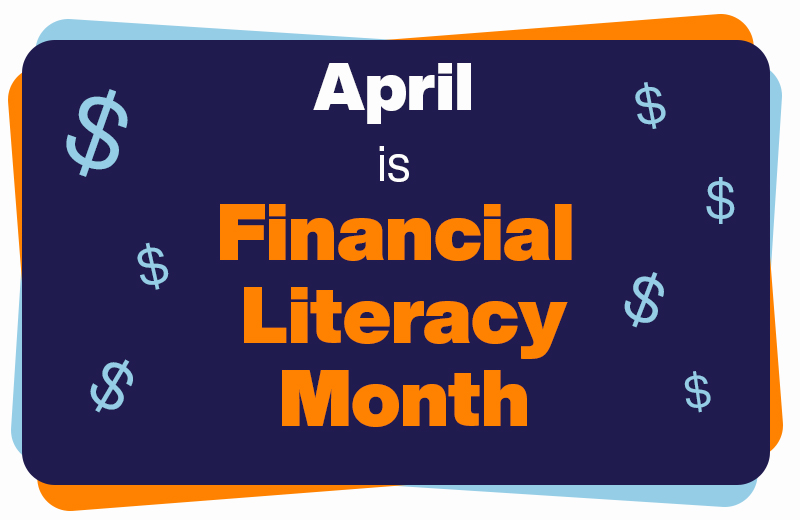Financial Literacy
April 8, 2025
It’s Time to Celebrate Financial Literacy Month by Taking Charge of Your Money

After the long, cold winter, April has finally sprung! That means it’s time for an important event that doesn’t involve bunnies, colorful eggs, or even chocolates: Financial Literacy Month.
It may not sound as sweet, but it is an excellent opportunity to empower yourself to take charge of your financial life.
Sound good?
Let’s delve a little deeper into what financial literacy is – and more importantly, how it can help you.
What is financial literacy?
Financial literacy involves having the skills and knowledge to make informed financial decisions to help you meet your short- and long-term goals. There are essentially, five core components of financial literacy, including:
Budgeting. When it comes to managing your everyday finances, budgeting is key. Having the skills to manage a budget can help you:
- Understand where your money is going.
- Ensure you meet your monthly bills.
- Identify ways to save money.
To create your budget, look at all your spending and income for a month to determine ways to reduce your spending and increase savings. To accomplish that, you should categorize your expenses by “wants,” such as dining out versus “needs,” like your rent.
Managing debt. Borrowing money can help you reach your financial goals, such as buying a home or car, or paying for college. Other types of debt, however, such as credit card debt, can hurt your finances if you don’t manage credit wisely. Here are some tips to help you manage debt:
- Don’t use a credit card to buy things you can’t afford with cash.
- Pay off your balances in full each month.
- Never miss a payment or make late payments.
Saving money. Life is full of unexpected expenses and though you can’t predict when you will be faced with one, you can prepare financially with an emergency fund. Experts
recommend that you have at least six months’ worth of living expenses to help protect you if you experience a financial setback, such as a job loss or illness. You also want to build savings to help you reach your longer-term goals, such as buying a home. Here are a few tips to help you save:
- Make saving money part of your monthly budget.
- Automate your savings with direct deposit or automatic transfers from your checking account to your savings account.
- Increase your savings if you get a raise or a tax refund.
Building and maintaining good credit. Credit is essential to helping you meet your goals. To qualify you for credit, lenders will look at your credit score, which helps them assess the risk of lending you money. Here are some ways to boost your credit score:
- Make bill payments on time, every time.
- Pay down your balances.Keep older credit accounts open.
- Check your credit reports regularly for mistakes or fraud.
- You can get a free credit report from each of the three major credit bureaus at annualcreditreport.com.
Take advantage of a powerful tool to help you manage your money
Avidia wants to help you take control of your money and reach your goals. That’s why we’re pleased to offer Your Money Insights. This no-cost, automated financial management tool, available with Avidia Digital Banking, can help you understand and monitor your spending, identify saving opportunities, and create a personalized budget.
But wait there’s more. Your Money Insights now features, Enrich, a powerful tool that can help you better recognize a transaction with clean and clear data and logos. That means no more puzzling, unfamiliar store abbreviations or vague descriptions you can’t recognize.
Celebrate Financial Literacy Month by taking charge of your money
To access Your Money Insights with Enrich, log in to Digital Banking today. Not enrolled in Digital Banking? Enroll today. It’s easy!